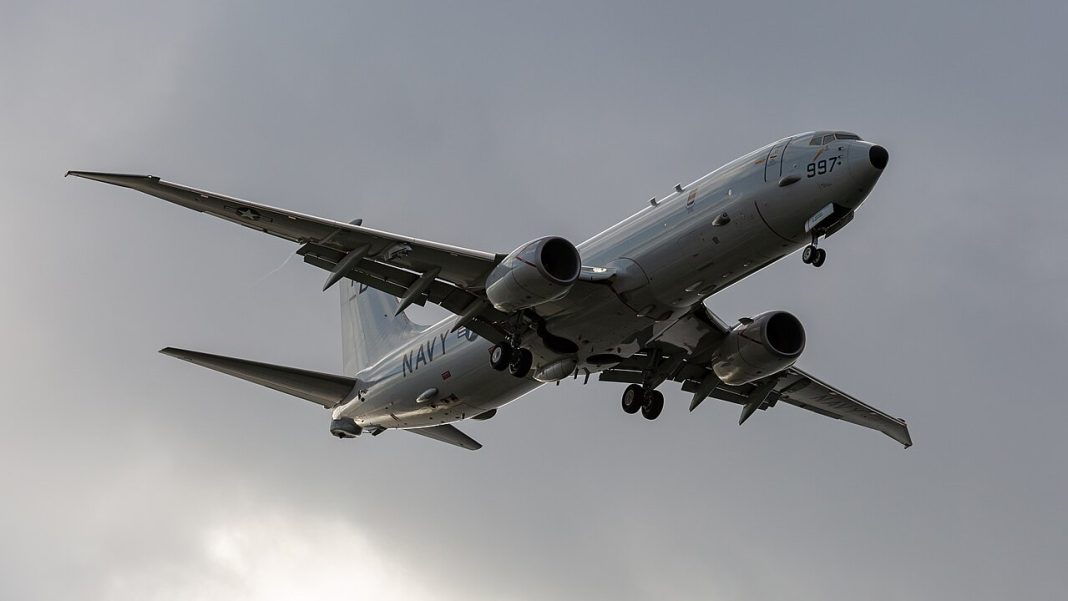The US Navy has significantly increased the deployment of its P-8 Poseidon surveillance aircraft near Venezuela. This move comes amid growing concerns over Venezuela’s role in drug trafficking and regional instability. The P-8 Poseidon patrols the Caribbean coast and monitors maritime routes that are suspected to be used by drug cartels.
US Navy Intensifies P-8 Poseidon Operations Near Venezuela
The Pentagon has also moved amphibious landing ships, thousands of US Marines, and other strategic military assets to the Pacific Ocean and the Caribbean Sea. The White House describes these operations as part of “anti-cartel” activities, targeting organized crime networks connected to Venezuela. These deployments are a visible demonstration of US military readiness and surveillance capabilities in the region.
In response, Venezuela has mobilized its militia and distributed weapons across the country. The government believes these measures are necessary to prepare for a possible US incursion. The P-8 Poseidon aircraft has advanced sensors. These sensors track maritime movements. They also monitor potential threats from the air. This capability adds to existing concerns.
Dangerous Provocation: US Navy Submarine Triggers North Korea’s Outrage
The P-8 Poseidon: A Surveillance Powerhouse
The P-8 Poseidon is a multi-role maritime surveillance aircraft that has been a crucial part of the US Navy since its first operational deployment in 2013. Developed by Boeing on the 737-800ERX airframe, the aircraft is designed for long-range missions and advanced sensor integration. It can detect and track surface vessels and submarines over large ocean areas.
Equipped with sonobuoys, the P-8 Poseidon can monitor underwater activity, while its electro-optical and infrared systems provide high-resolution imaging, even in bad weather. The aircraft is also armed with torpedoes, Harpoon anti-ship missiles, and depth charges, giving it the ability to respond directly to threats at sea.
The P-8 Poseidon’s intelligence, surveillance, and reconnaissance (ISR) systems allow it to share real-time information with other platforms, including drones, satellites, and naval vessels. Recent upgrades have enhanced its capabilities in anti-surface warfare and electronic warfare, making it adaptable to new threats. The aircraft’s crew of nine operates in a spacious cabin with ergonomic workstations, ensuring efficient mission management during extended operations.
178 global probes link Panama companies to Venezuelan corruption schemes worth billions
Globally, the P-8 Poseidon has been deployed in various theaters, monitoring Chinese naval activity in the South China Sea, Russian submarines in the Arctic, and anti-piracy operations off Somalia. Its integration with allied forces during joint exercises demonstrates its interoperability and enhances collective maritime security.
P-8 Poseidon’s Role in Countering Venezuelan Cartels
In the Caribbean, the P-8 Poseidon focuses on countering narcotics trafficking, especially operations linked to Venezuelan cartels such as the so-called “Cartel of the Suns.” Its advanced sensors detect smuggling vessels, monitor suspicious maritime activity, and provide intelligence that helps naval forces carry out interdictions.
US Navy assets, including three Arleigh Burke-class destroyers and a nuclear-powered attack submarine, support this surveillance mission. These platforms strengthen maritime security and enable real-time responses to threats. The P-8 Poseidon plays a vital role in this network by tracking movements and relaying critical information to naval forces and international partners like Colombia.
Political and social unrest in Venezuela coincides with these operations, following widely criticized elections last year. Observers note that the Maduro regime facilitates drug flows into the region, which has prompted international pressure and closer monitoring of Venezuelan waters. The P-8 Poseidon’s activities highlight a proactive approach to maritime security, deterring illegal activity while maintaining surveillance of potential threats.
US sends 4,000 troops and warships to southern Caribbean to target Venezuela cartels
The deployment underscores the US Navy’s ability to integrate technology, intelligence, and military assets into a cohesive operation. With real-time surveillance and advanced weaponry, the P-8 Poseidon ensures that naval forces remain informed and capable of responding quickly to developments along Venezuela’s coast.
The arrival of the P-8 Poseidon in the region represents a significant increase in monitoring and enforcement capabilities. Its presence, alongside surface and underwater naval assets, provides a clear demonstration of US military readiness in the Caribbean. The operations focus on curbing illegal activity, ensuring regional security, and maintaining a continuous watch over strategic maritime areas.
